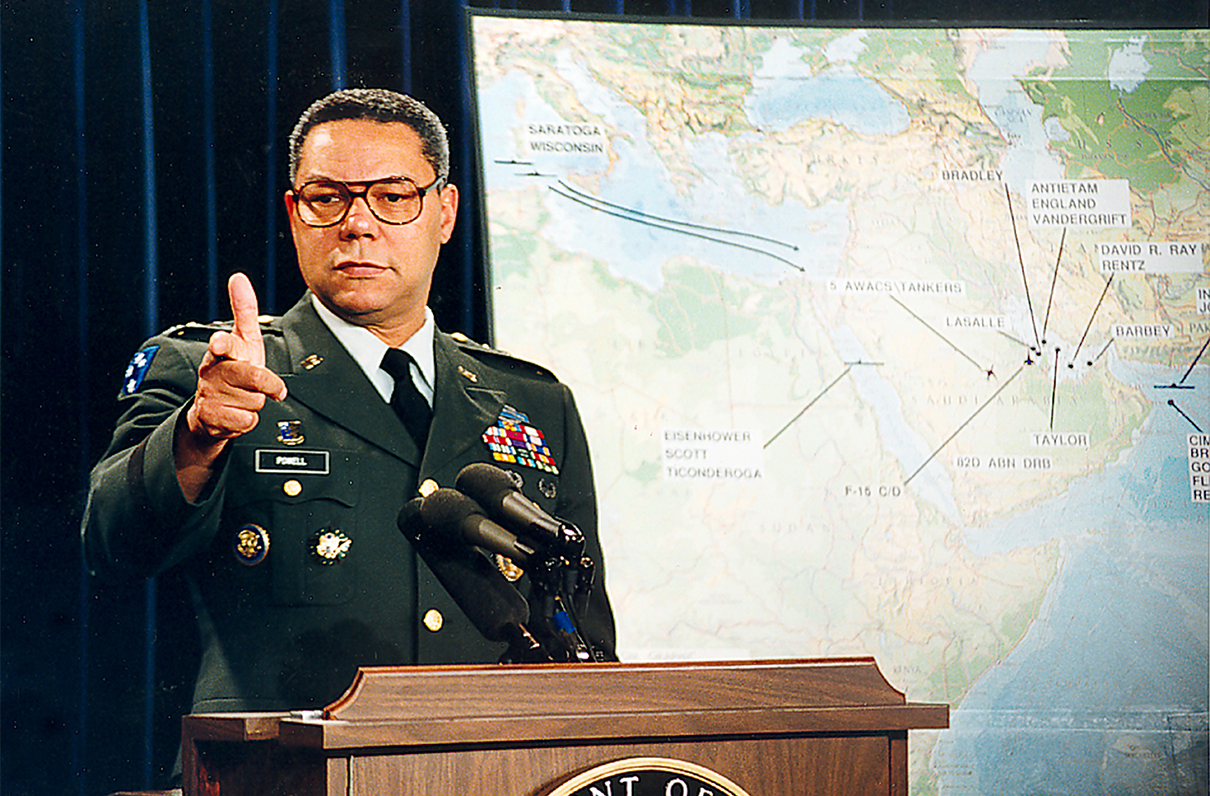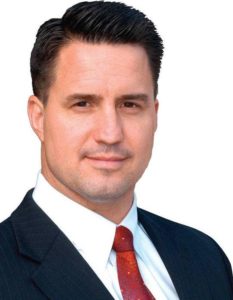
Learning of the death of Colin Powell brought back many memories to me personally. When I was commissioned as a new Army Officer in the summer of 1990, General Colin Powell was the Chairman of the Joint Chiefs of Staff, the senior military leader. I was branched Infantry, and Powell had come up through the Army as an Infantry Officer. I considered his career somewhat of a role model to follow.
Desert Shield began in 1990, leading to Desert Storm in early 1991. I was assigned to a Desert Storm spearpoint unit, the 24th Infantry Division, and we were all expecting a much longer and more costly war in which we would serve. In the end, the “Hundred Hour War” came and went before we finished Infantry Officer Basic Course. General Powell was ubiquitous in the news during that time, and we hung on his words and strategy: “We’re going to cut it off, and then we’re going to kill (Saddam Hussein’s Army)”.
After the war, Powell was again in the news in 1993 when President Bill Clinton attempted to make major cultural changes to the military. Powell pushed back for the sake of national security. Those of us serving had a great deal of respect for Powell’s leadership as Chairman, and I have thought about dynamics of that time compared to now.

Captain Colin Powell during Vietnam Conflict
The first thing standing out to me now is with respect to unity and meritocracy with the service. Powell’s becoming the first African-American Chairman of the Joint Chiefs was more a story to the civilian media than within the Armed Forces. To those of us serving then, the military culture and ethos taught us not to differentiate upon skin color. I had grown up on/around bases in the Army as the son of a career officer, and that dynamic of colorblindness permeated the culture.
Powell was a Ranger School graduate (those of us who graduated that course knew he was tough!), who had proven himself in combat twice in Vietnam as an Infantry officer. That, and his continued service at the various commands in Korea and elsewhere gave him his credibility among the troops to lead as Chairman. They didn’t care about his race. It is beyond unfortunate to see forces of racial division attacking the US military now after decades of our unified meritocracy. Seemingly “teaching” military members to view the world through race first. The “non-story” of Powell’s deserving promotion to Chairman over three decades ago should put a warning about creating a divided military.
“If a war comes, fight it. Fight it to the death.” — General Colin Powell.
The second aspect of that time is with the strength of the ethos of selflessness permeating the military. Powell came to that position the year the Berlin Wall fell, and then saw the dissolution of the Soviet Union in 1991. The military mentality of the Cold War was utterly selfless. It was a time of facing an existential threat of Communism/Marxism, in which pure national security considerations must trump all other considerations. Particularly politics and culture. An example is with the political agenda pushed by Bill Clinton.
When Powell took over as Chairman, the military maintained the ban on gay service and combat arms were all male. In 1993, Bill Clinton attempted to reverse the ban and integrate genders. Powell and the senior military leadership pushed back under purely national security considerations and regardless of their political views of the subject. Clinton and Powell eventually came to the compromise of “Don’t Ask, Don’t Tell” (allowing gay service but preventing potential deleterious effects of open gay service). General Powell famously differentiated the issue of integration of African-Americans from open gay service in a May 8, 1992 letter to Patricia Schroeder, and this letter provides insights to the priority placed on national security:
“I have given a great deal of thought to my position and continue to hold the view that the presence of homosexuals in the military is prejudicial to good order and discipline. This is the policy of the Department of Defense and is supported by all of the Joint Chiefs of Staff. It is also a view held by experts who have studied the sociology of the military for many years… Skin color is a benign, nonbehavioral characteristic. Sexual orientation is perhaps the most profound of human behavioral characteristics. Comparison of the two is a convenient but invalid argument.”
General Powell gave his best military advice against a political tide and even the administration he served. Agree or disagree, this took guts. His sole consideration was national security. For those of us serving, “Needs of the Military” always came first, and that was reinforced at the top. Powell remained steadfast to the
General Powell came up as an Army officer of the Cold War, and I am forever grateful to him and the others of his generation. A generation which fostered and demanded the ethos of colorblindness, meritocracy, and selfless service. Of steadfast adherence to demands of national security first. It’s important to remember that aspect of Colin Powell’s amazing American Journey.

We at The Standard put our necks on the line to report and bring news to you on sometimes “touchy subjects” others would prefer remain ‘behind the curtain’. Support Independent journalism! The Standard does not have billion dollar corporations or political bosses directing what we can and cannot print in our news. We print what people really want to know! And that information is more critical now than ever! You know how important it is to get proper news information—support that information source!



 RSS - Posts
RSS - Posts